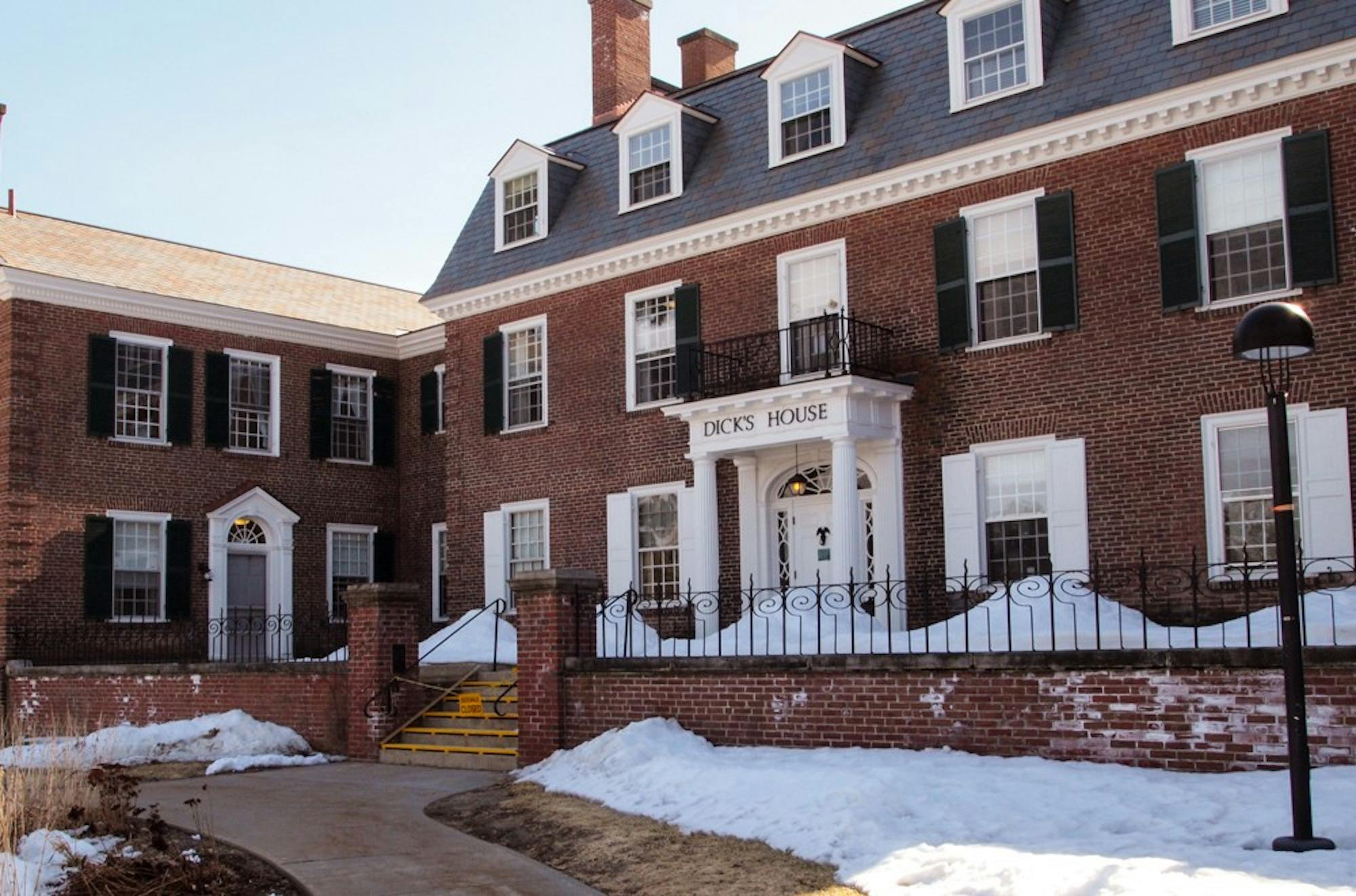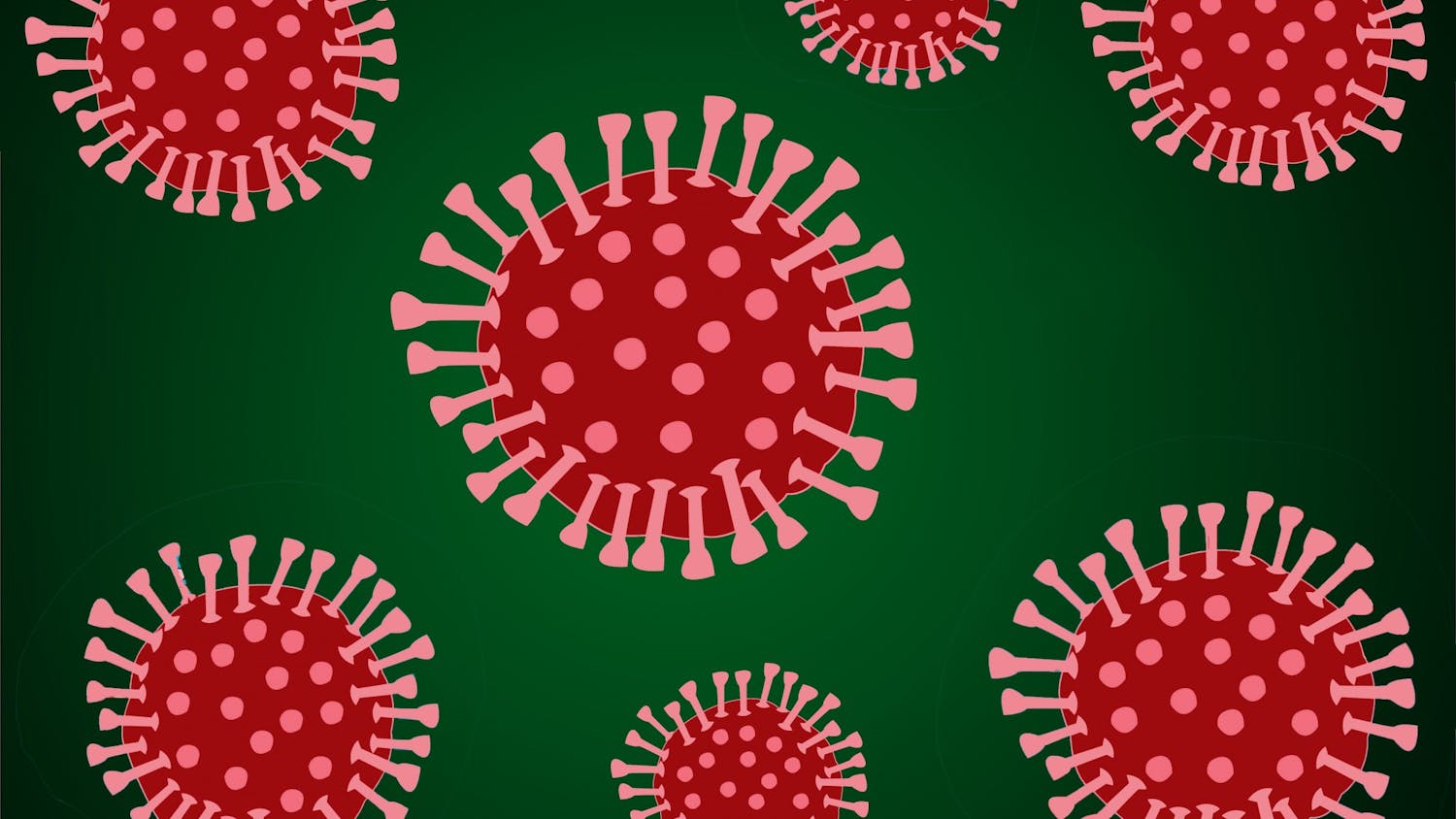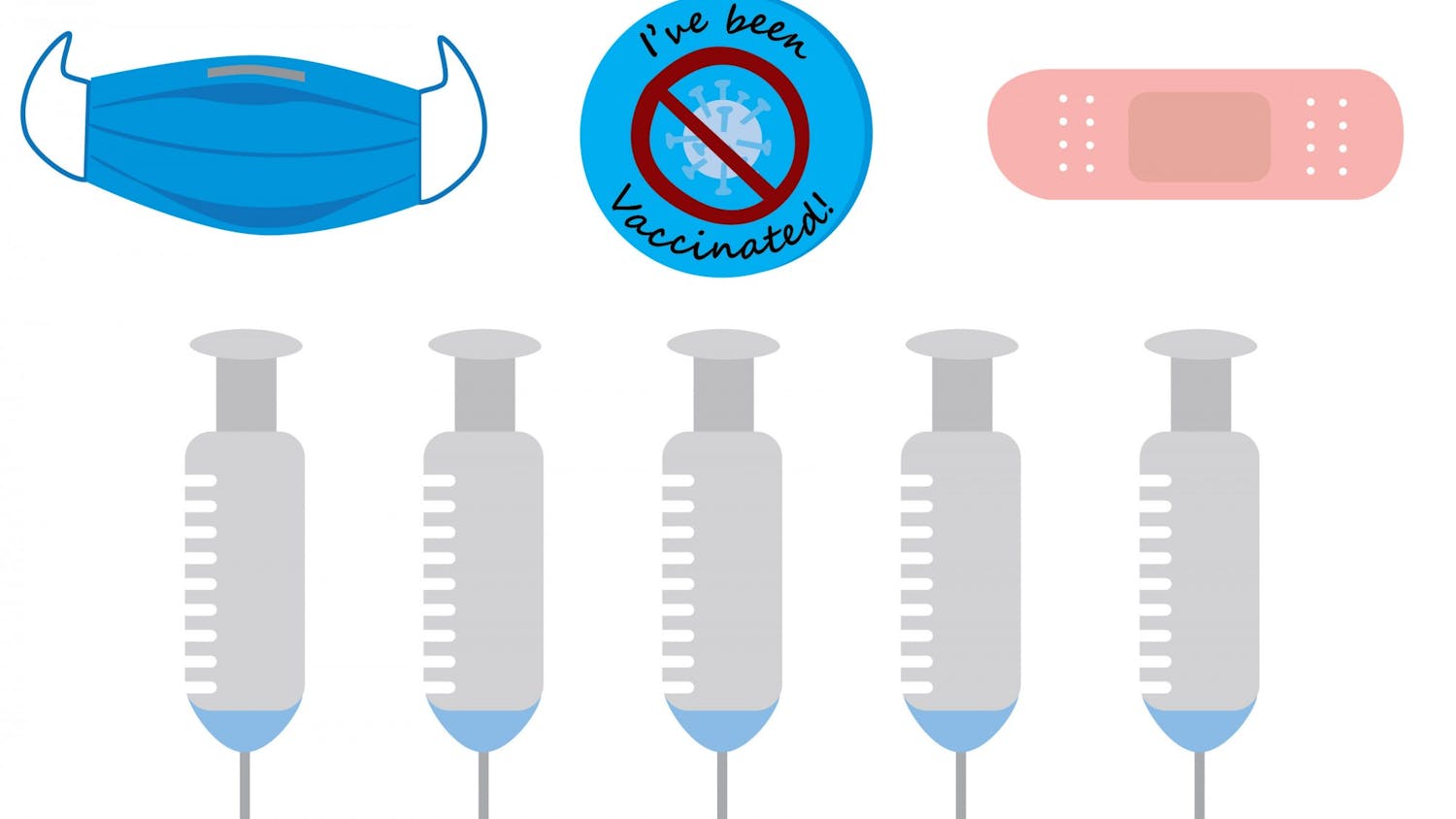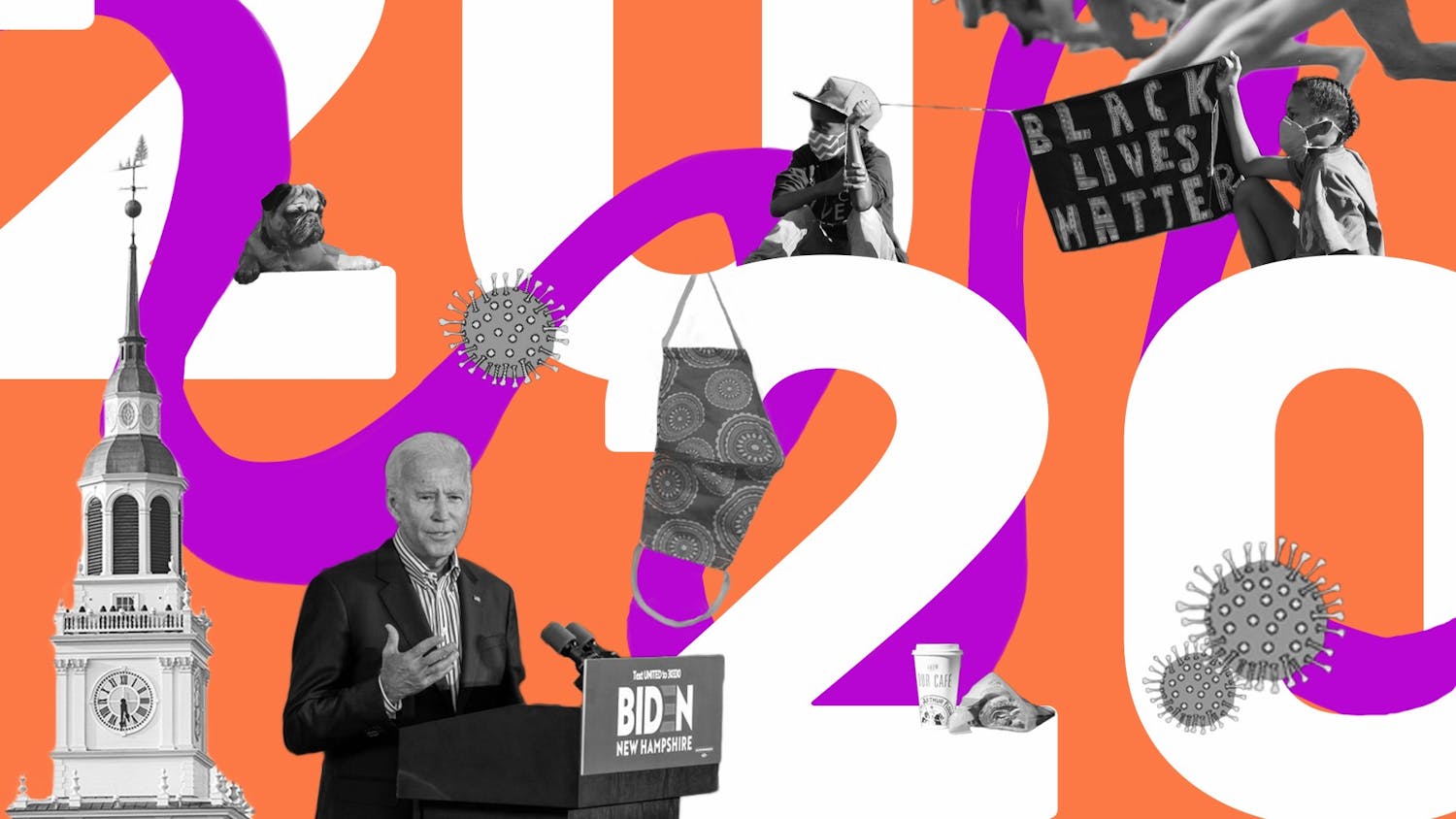As New Hampshire’s first round of COVID-19 vaccine distribution comes to a close, select Dartmouth students — EMTs working for Dartmouth Emergency Medical Services, members of the Dartmouth Ski Patrol and third- and fourth-year students at the Geisel School of Medicine — are among those who have already received the vaccine.
Under the state’s vaccine distribution plan, Phase 1a of vaccination includes at-risk health workers, older adults in residential care settings and first responders. Geisel students fall into the first category, while EMTs and members of Ski Patrol both fall into the third. Though Geisel students have mostly received their vaccines through Dick’s House or the Dartmouth-Hitchcock Medical Center, undergraduates have received the vaccine at designated state-run sites, such as at the Lebanon Armory or River Valley Community College in Claremont, New Hampshire. Receiving the vaccine, though highly recommended for all three groups, is optional.
According to director of clinical medical services Ann Bracken, about 230 Geisel students received vaccines at Dick’s House, with the majority getting vaccinated because they work at DHMC. Bracken wrote that “many [Geisel] students will have completed their vaccine series in the next couple of weeks.” She added that some received the Pfizer vaccine, while others received Moderna’s, depending on supplies.
Additionally, Bracken wrote that “at-risk” health workers at Dick’s House are getting vaccinated, and many of the College’s primary care and nursing staff have already received the vaccine.
Although Geisel students have yet to graduate and become doctors, they will spend much of their third and fourth years of medical school treating patients in a variety of hospital departments. This can involve direct contact with patients that may lead to COVID-19 exposure.
Geisel student government president Karissa LeClair Med’21, who received the first dose of the Pfizer vaccine about two weeks ago, noted that while DHMC is “really trying to mitigate” the possibility of high-risk exposure for health workers, “it’s pretty impossible to totally avoid.”
For example, LeClair cited anesthesia rotations, during which students intubate patients about to go into surgery. Because anesthesia controls the patient’s airway, there is significant risk that the virus will be spread to anyone involved with the procedure if the patient has COVID-19. Vaccination can ensure these procedures are conducted more safely.
“Not every patient that comes in to get elective surgery has been able to get a negative COVID test by that point,” LeClair said. “There have been cases that I've even heard of at Dartmouth where it's found out afterwards that the patient was positive, and the whole team in the room had been there for intubation.”
Dartmouth EMS executive director Brittany Cleary ’21, who received the Moderna vaccine, said it was “critical'' for EMTs to receive the vaccine in order to provide better medical care to patients. She said that although scientists are unsure whether vaccinated workers can still transmit the virus, the sense of security EMTs feel after getting vaccinated makes interacting with patients “so much safer.”
“We were still running shifts [in the fall], and that was understandably very stressful,” Cleary said. “Even just taking away that anxiety piece is huge in terms of ensuring that the care that we deliver is really high quality.”
Cleary estimated that 20 to 25 members of Dartmouth EMS will have received the vaccine by the end of the term.
Dartmouth Ski Patrol member Piper Stacey ’23, who received the first dose of the Pfizer vaccine on Jan. 27, noted that emergency workers need to ensure that the scene is safe before proceeding with treatment, which is much easier to do when patrollers have been vaccinated.
“The number one emergency medical response thing that you look for when you show up on scene is, ‘Am I safe as a responder?’ Because if I get hurt, then it means that I can't help the person that's already here,” Stacey said. “If they have COVID and I'm vaccinated, then the scene is safer for me to go and respond.”
Stacey, who is living on campus this term, said she was also concerned about preventing the spread of the virus between Upper Valley community members at the Skiway and other students on campus. She said that the “overwhelming majority” of Skiway customers are not Dartmouth students, so she and other members of Ski Patrol wanted to ensure that they were “not ideal disease vectors” between the two groups.
However, Stacey said that she initially grappled with the decision to get the vaccine, as she felt it “might not be the right thing to do” as a “healthy 19-year-old kid.” Once the Upper Valley saw a vaccine surplus in January, she said she felt “much more comfortable” with her decision to get vaccinated.
LeClair said that while she felt it was “definitely appropriate” for undergraduates working as EMTs or on ski patrol to receive the vaccine, she also believes that high-risk patients need to be vaccinated before the rest of the student community. Most students will receive vaccines under the third phase of New Hampshire’s distribution plan, which is currently slated for “May and beyond.”
“Something that we are really trying to be cautious about from a public health standpoint is trying to be equitable with vaccine distribution and recognizing that we're really fortunate that we have the privilege to be given this higher education and to be within this community,” she said. “But if that is getting us privileged access to a vaccine, is that fair to certain other communities that might be more disadvantaged and lack that same access?”
She added that although she “totally would want to get [her] vaccine as early as possible as a college student,” it is important to “prioritize people in those other demographics.”
Bracken wrote that Dartmouth is “eager to ensure opportunities for students, faculty and staff who have not already received a vaccine to be vaccinated as soon as possible.”
“We are actively tracking vaccine developments and preparing to help distribute and administer vaccines if it is possible to do so in partnership with the state of [New Hampshire],” she wrote.

Lauren ('23) is news executive editor for The Dartmouth. She is from Bethesda, Maryland, and plans to major in government and minor in public policy.




